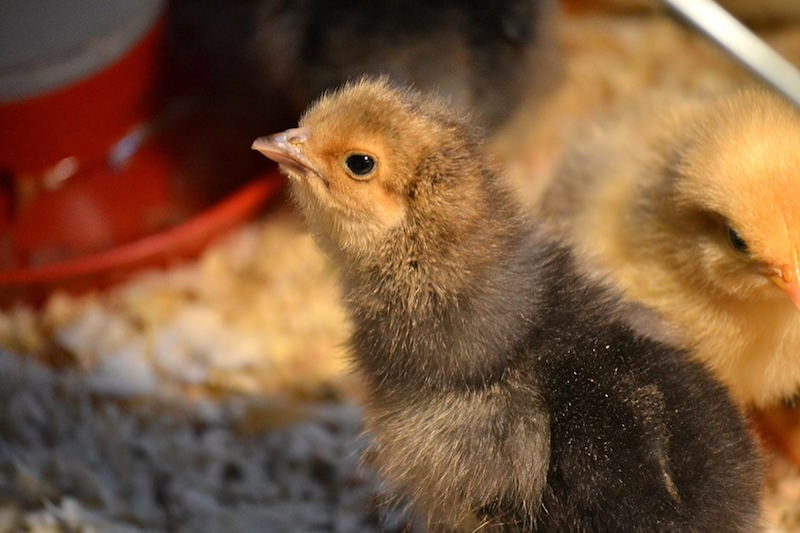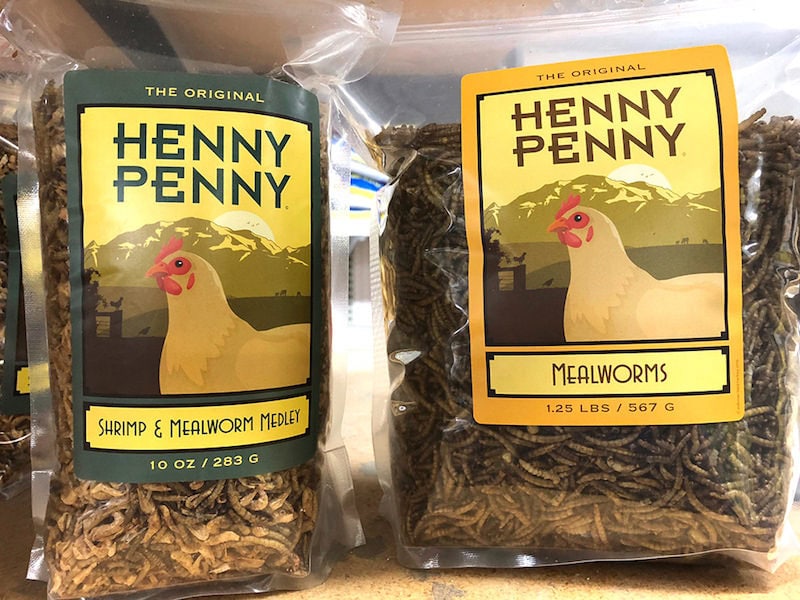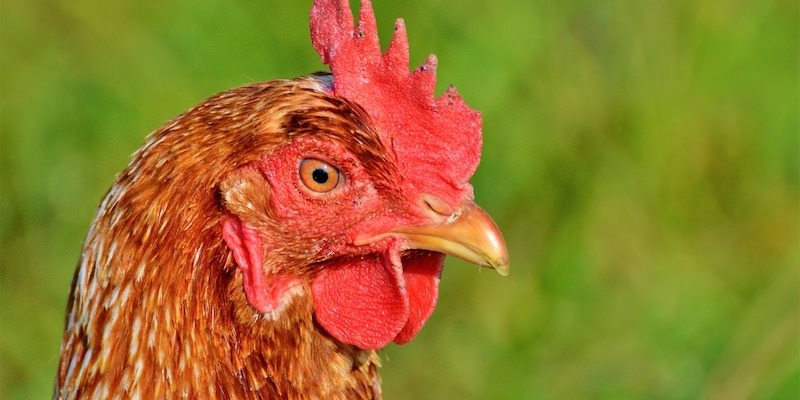Join the chick clique
Sierra Feed and Saddlery in South Reno offers local experts for the chicken-loving public. Each spring the store sells around 500 of the fluffy, peeping chicks as well as feed and supplies for the babies and grown birds.
Sierra Feed and Saddlery receives their chicks from Privett Hatchery in Portales, NM. The most popular breeds for the Reno-Tahoe area include Barred Rock, Buff Orpington, Rhode Island Red, Golden Laced Wyandotte, and Silver Laced Wyandotte for brown eggs; Welsummer for white eggs; and Ameraucana for the prized blue-green eggs.
“Chicks are super easy to care for,” Todhunter says. “You just have to make sure they have enough food and water, are kept warm and out of the elements, and away from other pets.”

If you are new to raising baby chickens, Sierra Feed and Saddlery recommends the following supplies available at the store:
- Organic chick starter
- Organic chick scratch for treats
- Small waterer and feeder
- Probiotics and electrolytes to add to the chicks’ water
- Cardboard box or a pen with a top if you have other pets
- Small bird bedding or newspaper for bottom of pen
- Brooder lamp with a red bulb
A pen with a lid or top will not only protect the chicks from cats and dogs, but it will deter the birds from flying out once they start to grow feathers. The red bulb on the brooder lamp allows the chicks to get regular sleep, which maintains their stress levels. The lamp should be kept about 20 to 27 inches away from the birds.

Amazing layers
Once the chicks are fully feathered, they can be introduced to a backyard pen. This can take about four to six weeks. At this point, the birds also can be introduced to a layer blend of food. Sierra Feed and Saddlery recommends Henny Penny Layer Blend and Henny Penny Scratch. This is a cracked corn that most chickens clamor for. Other treats include Henny Penny Mealworms and Shrimp & Mealworm Medley. Kitchen scraps, compost, and alfalfa also are nice treats.

A chicken coop and pen should be large enough to have at least 10 square feet per bird. A raised coop is needed so the birds can naturally roost and lay their eggs in a protected space. This year, Sierra Feed and Saddlery will be featuring chicken coop and run kits that the store actually will put together for the customer. The store also sells nesting box kits.
If additional birds are going to be added to the flock, Todhunter recommends doing it in groups of three and doing it gradually so the new birds will be accepted into the established group’s pecking order.
Chickens will start to lay eggs after about a year. With enough food and water and protection, chickens can continue to happily lay for another five years. However, the love for them continues long after the hens stop laying eggs.
“We have a lot of customers who come in and say, ‘Yeah, mine stopped laying a few years ago, but I still love them and get them whatever they want,’” Todhunter says. “All of them have names and they are all pets.”
Cold-hardy birds
Julia Wilson, a Sierra Feed and Saddlery customer, raises cold-hardy Black Marans, Easter Eggers, and Chanteclers in Truckee, Calif. Even with several feet of snow in the winter and spring, her hens still lay eggs.
“Once the coop is built, it is so easy to care for them,” Wilson says. “All they need is food and water.”
Her chickens do have an aquarium heater in their water tank to keep it from freezing and live in a large, heavy-duty pen that protects them from coyotes, raccoons, and bears.
“Even I locked myself in there and couldn’t get out,” Wilson laughs.
Sierra Feed and Saddlery
460 S Virginia St., Reno • 775-853-6700 • Sierrafeedandsaddlery.com
For details on raising chickens in Washoe County: Washoecounty.us/animal/faq/livestock_zoning.php
Christina Nellemann is a writer and designer living in Washoe Valley who enjoys her own fresh buff Orpington and Buckeye eggs.


